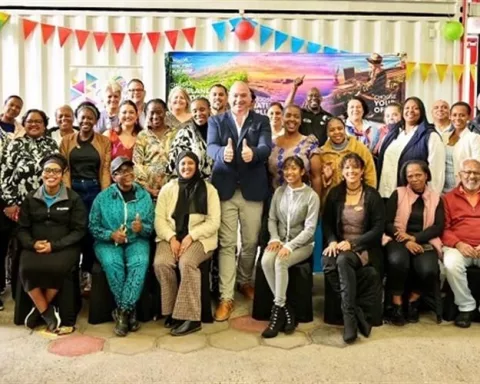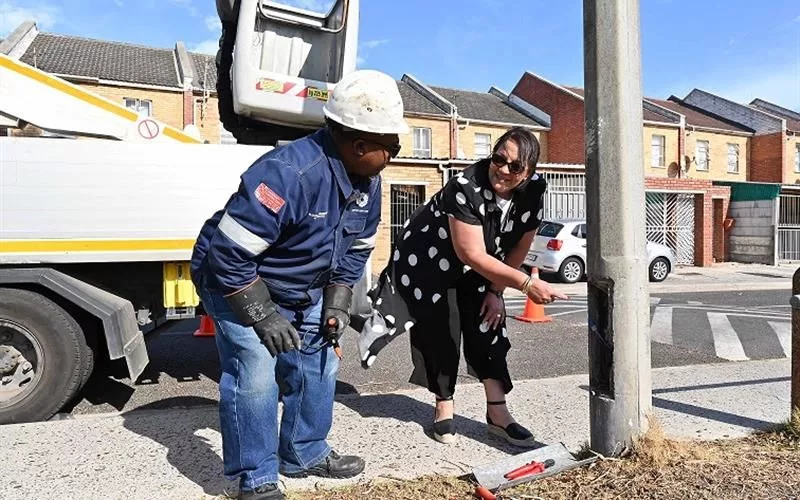The National Assembly Speaker, Ms Nosiviwe Mapisa-Nqakula, gave a passionate call to action during the 2024 Women Speakers’ Summit in Paris, urging parliamentary speakers around the world to advocate for gender-aware budgeting. She stressed the importance of incorporating a gender lens into budgetary procedures to foster gender equality and break down gender stereotypes and sociopolitical barriers. South Africa’s progress in enhancing gender-responsive budgeting has shown positive results, and Mapisa-Nqakula implored her peers to guide their respective parliaments towards the enactment of laws and regulations that protect women’s rights.
Championing Gender-Sensitive Budgeting: A Call to Action. During the 2024 Women Speakers’ Summit, National Assembly Speaker Ms Nosiviwe Mapisa-Nqakula urged parliamentary speakers to advocate for gender-aware budgeting. She stressed the importance of incorporating a gender lens into budgetary procedures to ensure the allocation of resources to foster gender equality and accomplish intended results. Gender-responsive budgeting can break down gender stereotypes and sociopolitical barriers to gender equality and protect women’s rights. South Africa’s progress in enhancing gender-responsive budgeting and impact assessment has shown positive results.
During an enthusiastic appeal filled with determination, the National Assembly Speaker, Ms Nosiviwe Mapisa-Nqakula, urged parliamentary speakers around the globe to advocate for gender-aware budgeting. The appeal took place during a roundtable talk at the 2024 Women Speakers’ Summit in Paris. Here, Mapisa-Nqakula stressed the need for a conscious and intentional approach to tackling gender inequality, encompassing legislation, supervision, and fiscal steps.
Drawing inspiration from time-honored knowledge and current circumstances, Mapisa-Nqakula highlighted the importance of incorporating a gender lens into budgetary procedures. She steadfastly believed this integration is vital to effectively assess the impact of policies and programs. It seeks to ensure the prudent allocation of resources to foster gender equality and accomplish intended results.
Mapisa-Nqakula expanded on the potential possibilities, imagining a scenario in which governments allocate funds specifically for projects that enhance girls’ education. This vision included scholarships, transportation allowances, and the construction of safe and inclusive educational facilities.
Breaking down Gender Stereotypes through Gender-Responsive Budgeting
Gender-responsive budgeting isn’t confined to education. Mapisa-Nqakula drew attention to its capacity to transform teaching methods and curriculum development. By reinforcing teacher training endeavors that promote gender-sensitive pedagogies, we can confront and ultimately demolish gender stereotypes.
Parliaments play an essential role in this transformation. Mapisa-Nqakula highlighted how parliaments can break down long-standing sociopolitical barriers to gender equality. These deeply rooted structures of power and discrimination have sustained gender disparities over the course of centuries.
Mapisa-Nqakula implored her peers to guide their respective parliaments towards the enactment of laws and regulations that protect women’s rights. She recommended leveraging the power of the parliament to allocate funds for women and girls’ education and health programs. This would also involve developing comprehensive strategies to prevent and combat gender-based violence.
South Africa’s Progress in Gender Responsive Budgeting
In a demonstration of solidarity, Mapisa-Nqakula shared South Africa’s progress in enhancing gender-responsive budgeting and impact assessment. She noted the early indications of positive results from these efforts, maintaining that they are effective tools in the battle against gender inequality in education, health, and the fight against gender violence.
Her message to the delegates was unambiguous – gender-sensitive budgeting should be pervasive across all sectors and industries. It should address the specific health needs of women and girls, alleviate disparities in healthcare access, enhance maternal health services, and increase access to reproductive healthcare.
The Women Speakers’ Summit and the Future of Gender Equality
The 2024 Women Speakers’ Summit offered an essential platform for sharing best practices, exchanging ideas, and fostering collaborations. Delegates deliberated about transforming educational models, ensuring young girls’ access to future sectors, and legislative advancements to combat violence against women. This forum has played a crucial role in advancing progress in sexual and reproductive health. The momentum generated needs to be maintained and magnified in the future.
In Cape Town, the site of the Parliament of the Republic of South Africa, Mapisa-Nqakula’s plea resonates. Her appeal underscores the potential of parliaments around the world to advance gender equality through gender-sensitive budgeting. With the majority of the National Assembly endorsing this view, the winds of change are gathering speed. Nonetheless, the journey is long, and there is a continuing need for sustained effort, unwavering dedication, and firm action.
1. What is gender-sensitive budgeting, and why is it important?
Gender-sensitive budgeting is the integration of a gender lens into budgetary procedures to ensure the allocation of resources to foster gender equality and break down gender stereotypes and sociopolitical barriers. It is essential to accomplish intended results, protect women’s rights, and enhance access to education, healthcare, and reproductive health services.
2. What was the appeal made by National Assembly Speaker Ms Nosiviwe Mapisa-Nqakula during the 2024 Women Speakers’ Summit?
During the 2024 Women Speakers’ Summit, National Assembly Speaker Ms Nosiviwe Mapisa-Nqakula called upon parliamentary speakers worldwide to advocate for gender-sensitive budgeting. She urged her peers to guide their respective parliaments towards the enactment of laws and regulations that protect women’s rights.
3. How can gender-responsive budgeting help break down gender stereotypes?
Gender-responsive budgeting can help transform teaching methods and curriculum development by reinforcing teacher training endeavors that promote gender-sensitive pedagogies. By doing so, we can confront and ultimately demolish gender stereotypes.
4. How has South Africa progressed in gender-responsive budgeting?
South Africa has made significant progress in enhancing gender-responsive budgeting and impact assessment, with early indications of positive results from these efforts. These tools have been effective in the battle against gender inequality in education, health, and the fight against gender violence.
5. What was the Women Speakers’ Summit, and what was its focus?
The 2024 Women Speakers’ Summit was a platform for sharing best practices, exchanging ideas, and fostering collaborations. Delegates discussed transforming educational models, ensuring young girls’ access to future sectors, and legislative advancements to combat violence against women. The summit also played a crucial role in advancing progress in sexual and reproductive health.
6. What is the potential of parliaments around the world to advance gender equality through gender-sensitive budgeting?
Parliaments worldwide hold enormous potential to advance gender equality through gender-sensitive budgeting. By allocating funds for women and girls’ education and health programs and developing comprehensive strategies to prevent and combat gender-based violence, parliaments can break down long-standing sociopolitical barriers to gender equality.












